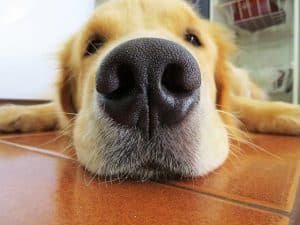It is common to find your feline pet with a strong, fetid odor. This condition can be caused by a variety of factors including bacteria build-up in your pet’s mouth. The bad breath can be a sign of an underlying periodontal disease. However, if the condition is followed by other symptoms such as increased thirst, a heightened case of urination, and weight loss, then your pet may be suffering from medication such diabetes, liver, or kidney disease.
Contents
What causes bad breath in cats?
Feline halitosis (bad breath in cats) is mostly caused by periodontal conditions. The accumulation of foodstuffs on the cat’s teeth creates bad teeth and can lead to gum problems. Periodontal disease is an infection of the gums caused by plaque bacteria.
Other causes that can lead to bad breath in cats include disorders such as diabetes mellitus, respiratory conditions such as rhinitis, sinuses (sinusitis), and gastrointestinal problems. Halitosis can also be as a result of infections. Bacterial, viral, and fungal infections. An infection that invades the feline’s mouth (e.g. periodontitis) may lead to bad breath.

If you notice that your cat has a smelly breath then the best thing to do is consult your vet to determine the likely cause of the condition.
In most instances, the bad breath may be a simple case cleaning the teeth to get rid of the smell. A proper examination of the pet together with information concerning its behavior prior to the check-up can help determine what is causing the bad breath. For instance, an ammonia smelling breath along with frequent urination is a key indicator of kidney failure. Similarly, a fruity smell coupled with behaviors such as constant thirst, or urination, can be an indication of diabetes.
Cat teeth cleaning
If your feline’s bad breath is as a result of dirty teeth, then your vet may solve the issue by cleaning its teeth. After this, you may have to conduct the cleaning yourself regularly to prevent the issue from recurring.
You can purchase a cat toothbrush and toothpaste from petco.com. Cleaning your pet’s teeth can be a challenge at first. Your feline friend may be reluctant to cooperate. As a result, it is advisable to make your pet accustomed to having their lips lifted and teeth exposed for a short period of time. Do not attempt to brush your cat’s teeth using your own toothpaste or any other substitute that is used by human beings, e.g. baking soda.
These substances may be ingested leading to gastrointestinal issues. Purchase a pet toothpaste, for instance, the Virbac C.E.T Enzymatic Dog and Cat Poultry Flavor toothpaste is a long-established pet toothpaste on the market. You can also purchase a toothbrush specifically designed for cats, or you can use a child’s toothbrush to conduct the cleaning.
If you have a kitten, then you can start getting them used to have their teeth cleaned regularly. This sets the pace for proper oral health care throughout their lives. You can make it comfortable with the experience either by cradling it or dipping your finger in tuna water to make your pet open their mouth.
Consider developing an oral care plan for your pet. This involves frequently brushing your feline’s teeth daily. An annual or semi-annual dental examination is equally important to prevent the condition from recurring. You can purchase a mouthwash for your pet, for instance, the vet-approved NHV mouth drops. This product helps promote healthy breath and prevent gingivitis.
A combination of wet and dry foods is advisable to promote oral health. Raw food and bones, for example, a chicken wing or neck can help your cat in naturally cleaning its teeth. Beef and rabbit are also good foods, along with greens. You can incorporate these foods as a supplement to your cat’s diet. Do not attempt to cook the bones before giving them to your cat. Cooked bones are likely to break or splinter thereby harming its mouth.
If the fetid breath is as a result of other medical conditions such as diabetes, then your vet would be able to advise you on the way forward.
Cat bad breath home remedies
There are a variety of home remedies that you can use to deal with the fetid breath. One common remedy is the use of peppermint oil. Peppermint oil is an essential oil. This oil helps fight bad breath and bacteria. You need to mix a portion of the oil with water.
For instance, mix 1 cup of water with one tablespoon of peppermint oil. Place the mixture into a spray bottle and spray it into your cat’s mouth. Alternatively, you can make a similar mixture using lemon juice. Take ½ cup of water and mix with 2-3 drops of lemon juice. Stir the mixture of the Lemon water mixture and let your cat drink the solution.
There is a proliferation of healthy treats and chews in the market that claims to help in controlling bad breath. Be cautious with these products. Before you make a purchase, check the ingredients and brand reviews.
Concluding remarks:-
As the cliché goes, prevention is better than cure. Brushing your cat’s teeth regularly is a sure way of preventing bad breath. Regular check-ups to the vet will also help prevent dental issues from creeping up.
References:
- PetMD.com: https://goo.gl/RiyHLh
- PetMD.com: https://goo.gl/uyeGny
- Vetstreet.com https://goo.gl/f2m4kE
- 1800remedies.com https://goo.gl/jXAvY6
- Wldernesscat.com https://goo.gl/Sz7hX2
- Consciouscat.net: https://goo.gl/9W6hMy





Leave a Reply
You must be logged in to post a comment.